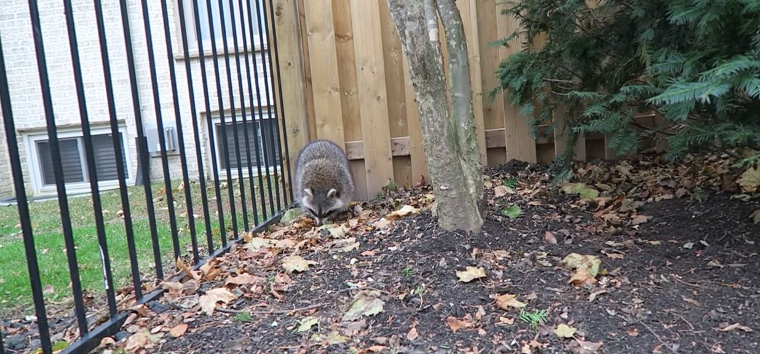-
info@aaanimalcontrol.com
Call us for help in your town
Humane Wildlife Education
Sick Raccoon Symptoms
Need raccoon removal in your hometown? We service over 500 USA locations! Click here to hire us in your town and check prices- updated for year 2020.
Symptoms of sick raccoons are just as vague as some of the early symptoms for humans with various diseases. If you take a peek at the symptoms for any number of diseases, even totally random ones, they will say something along the line of: nausea, headaches, muscle aches, chills, fevers, aversion to light, loss of appetite, etc.

These early symptoms are your body's way of telling you something isn't right, but those symptoms aren't helpful to you, especially if you don't know that you have come into contact with something that could have made you sick. How were you to know that stroking a wild raccoon could lead to a nasty stomach infection? Many people wouldn't believe it, but cross-contamination between these animals and the things that we eat, drink, or otherwise put in our mouths happens regularly — far more regularly than it should do.
The earliest symptoms that a sick raccoon is likely to show will include being out more during the day (otherwise a nocturnal animal) but doesn't always mean that the animal is rabid. It might be looking for hydration or food. It might just be seriously sick and confused, but this still doesn't mean that it has rabies.
A sick raccoon might have a headache or some pain in its muscles, but you have no way of knowing whether or not that is the case. It won't be able to tell you all about it, and you have no way of picking up that information, unless you are Dr. Doolittle or a very good Vet with an animal-sense like no other.
That's the thing about wild raccoons — about all wild animals, in fact — you just don't know by looking at them whether they are fit or healthy, or whether they have something seriously wrong with them. Many diseases, rabies included, can lie dormant in the body for some time before any symptoms start to show at all, and if you were to come across an animal during that time, you would wrongly assume the animal were safe and put yourself in the direct line of danger.
When it comes to wild animals and especially wild animal diseases, it is always better to side with caution and to keep your distance. How do you know that the raccoon you're looking at wasn't infected with rabies just three days ago? It wouldn't have had the virus for long enough to show symptoms, but could still very easily pass it along to you.
Be safe, be smart, keep your distance.
For more information, you may want to click on one of these guides that I wrote:
How much does raccoon removal cost? - get the lowdown on prices.
How to get rid of raccoons - my main raccoon removal info guide.
Example raccoon trapping photographs - get do-it-yourself ideas.
Raccoon job blog - learn from great examples of raccoon jobs I've done.
Raccoons in the attic - what to do to solve the problem.


















